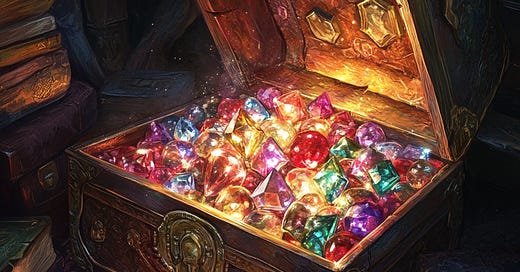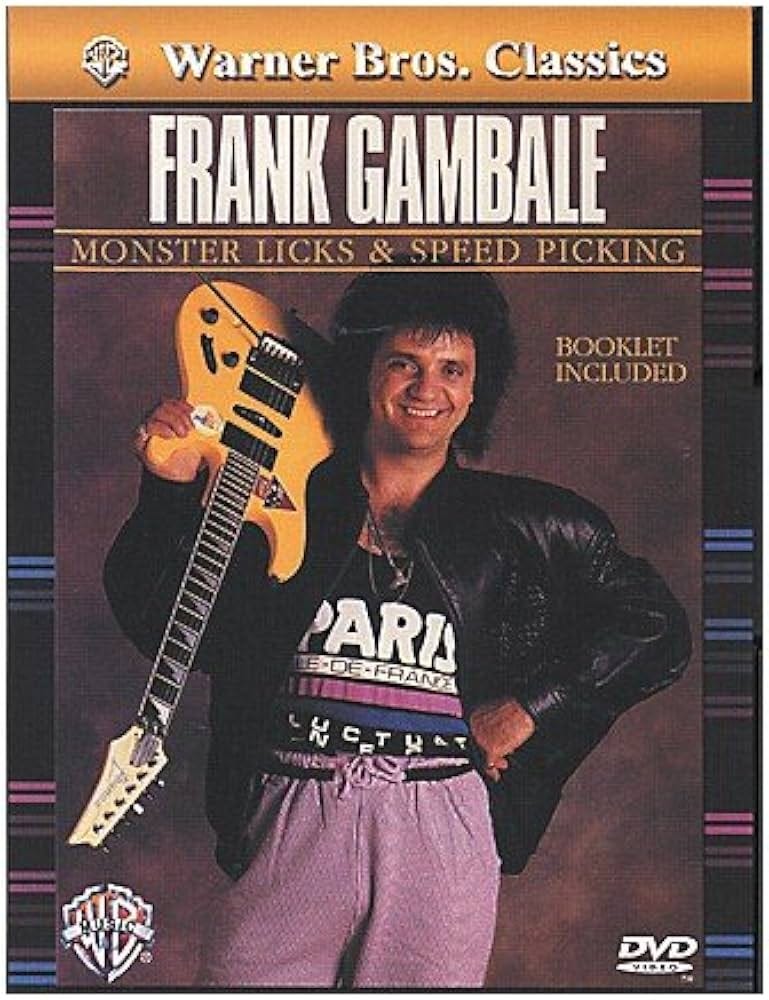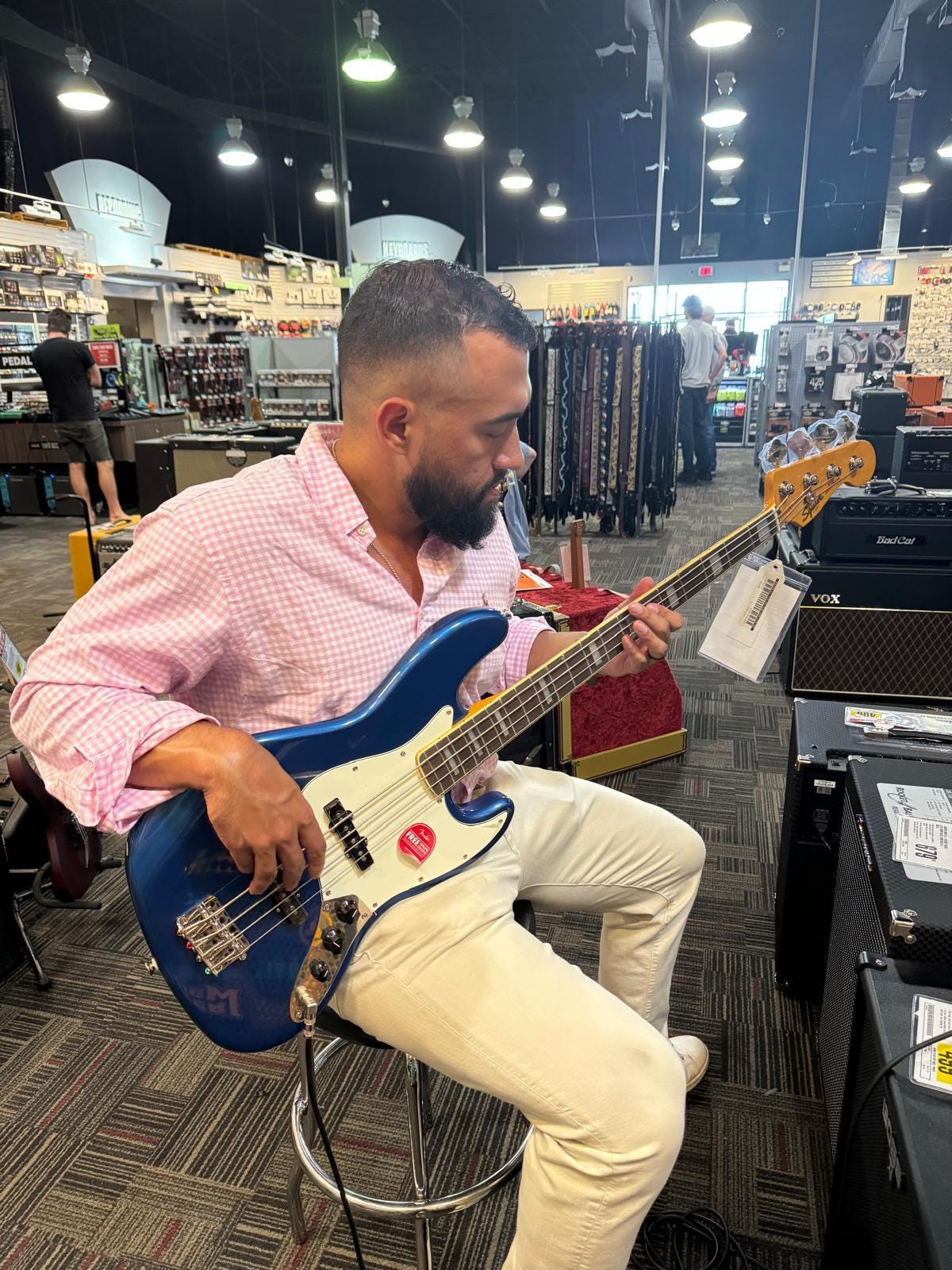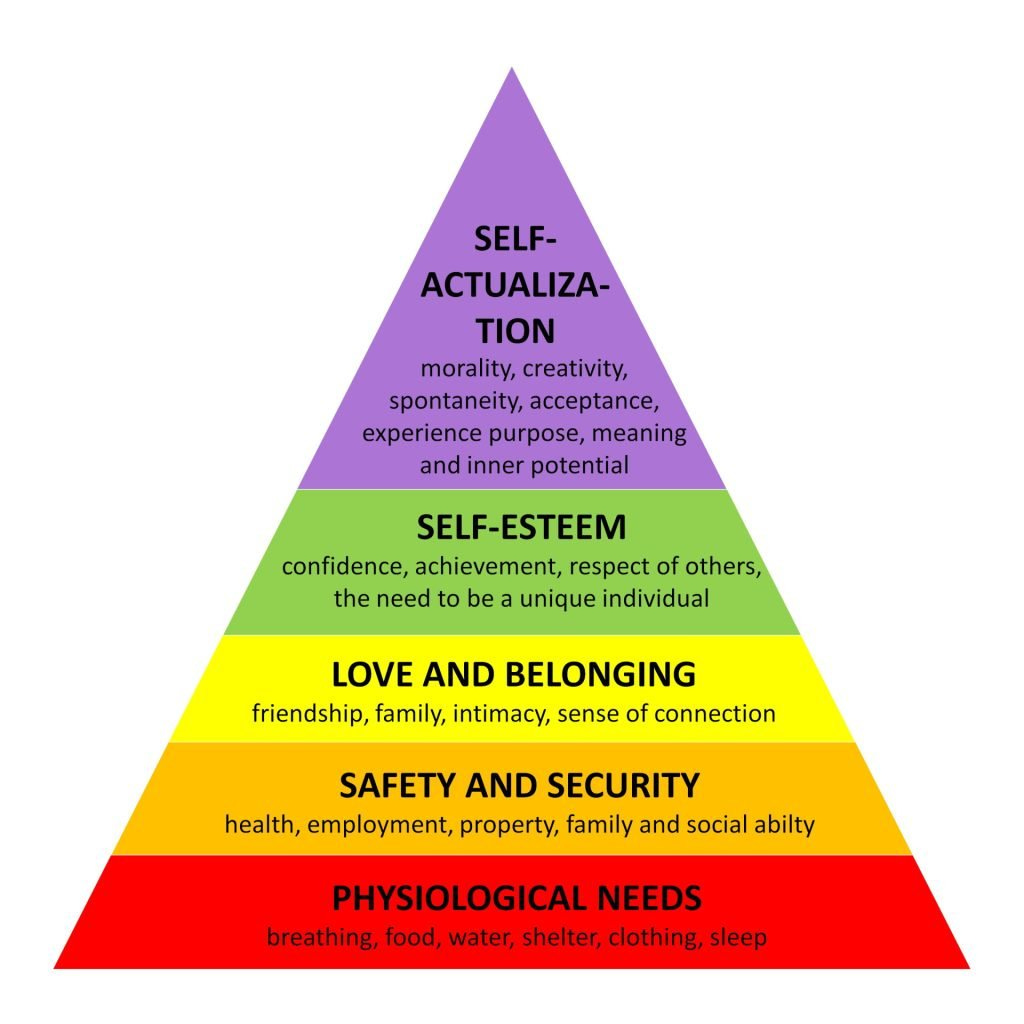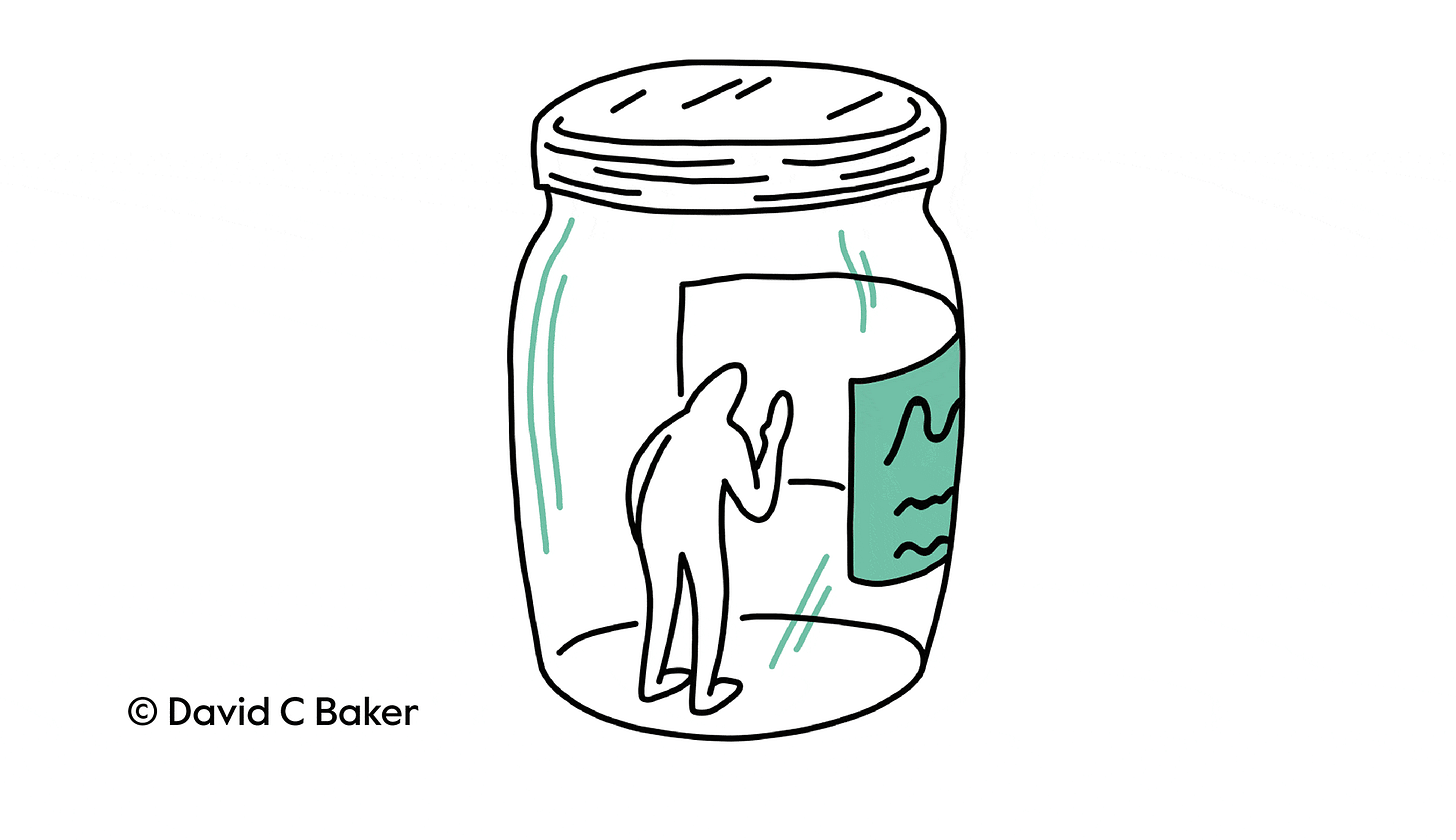The Gift - Embracing Your Superpowers By Giving
Introduction
When I ask you about what your "greatest gift is", what's the first thing that comes to mind?
Most answer from the ego: "What makes me more noteworthy or accomplished than other people?" or "What do other people know me for/tell me I'm really good at?"
In this article, I propose that this traditional way of evaluating "gifts" lacks nuance, and as a byproduct implies a limiting belief that is the source of much insecurity, anxiety and suffering. Worse, it blinds people to the TRUE gift that they were born with - and like God's love - they can NEVER lose, except by choosing not to embrace.
I spent many years locked into the same mindset before realizing that I had it all wrong - and the realization I had has since changed my life forever. I hope it does the same for you.
Embracing Your Powers For Good
We'll start today with a reflection on the very questions that I proposed in the introduction: "What makes me more noteworthy or accomplished than other people?" or "What do other people know me for/tell me I'm really good at?"
If you're like a lot of people, just vocalizing that question will come with a panoply of feelings - many of them negative. It's not uncommon to reflexively feel guilty, anxious or distressed by this question, and I invite you to sit with those feelings, whatever they may be, and ask yourself: Why might I be feeling that way?
One answer might be that society has conditioned us to believe that downplaying our gifts is a virtue, a behavior that is positively labelled "modesty". We carry within us ideas that are not ours, but accumulated from others as a byproduct of living, and these beliefs invoke emotional responses, which left unchallenged solidify into a self-fulfilling prophesy of "truth".
I am inviting you today to challenge the passive emotional reactions you've inherited from your upbringing, society and the people around you to take up the axe of introspection to swing at your consciousness and uncover your unknown unknowns.
What you find may shock you.
Applying Some Logic
If you feel guilty or shameful at the possibility of being "better" than others in a specific domain, then by definition you're associating that fact with the idea that acknowledging or demonstrating a developed aptitude is "wrong" in some capacity.
After all, there is no reason to feel guilty or shameful if you're not doing something wrong, is there?
One possible explanation for this is that being talented draws attention to other people's "lack" of talent.
"Be humble", we hear, or "nobody likes a show-off". If we deconstruct the underlying logic to these axioms, we find them wanting: Is skill a zero sum game? I.E: If I am skilled in something, does that necessarily mean you are not? Does it mean I am tapping a finite resource by which I deny your doing the same? No, of course not.
Another is that demonstrating your skillset is necessarily a mechanism to serve the self or the ego. To be sure, this CAN and DOES happen, but is hubris a NECESSARY CONDITION of skill?
I'm sure you can point to plenty of people with considerable talents who you would consider extraordinarily humble, and by the converse several with no discernible aptitudes at all who display a great deal of hubris.
It is fair, then, to conclude that the two are not mutually inclusive, and that talent does not beget hubris.
Following this logical chain, we conclude that the mere possession of talents and gifts should not be a source of guilt or shame, but rather that the fork in the road lies in our fundamental motivations FOR leveraging our talents and gifts.
Tied all together, we have the following proposition:
Being humble and reserved about your talents and gifts is only a virtue if you believe that showcasing them is a mechanism to elevate yourself above others.
If you use your talents and gifts a means to raise others up and serve them, humility is not only NOT virtuous, but actually a vice - for it denies others the ability to benefit from or be inspired by your talents
Thus, perhaps the guilt and shame we associate with having a stand-out skill set is not possession of the skillset in and of itself, but rather the fact that we hoard those skills for self promotion rather than to exercise the "true gift", which is to spread the word of God not through our rhetoric, but by enriching the lives of those around us with our unique talents.
I invite you to consider that it's precisely this fundamental misunderstanding that leads us to spend so many years of our lives hiding away our precious light, either wrestling with the limiting belief that doing so makes us responsible for feelings of inadequacy in others or guilt associated with being special.
And yet we are missing something to this whole discussion: We can sit around and debate definitions all day, but when it comes down to it the most dearly held knowledge is first-personal in nature. Here's my story of coming to this realization for myself - which I share with you so that you may look back across your own life and connect the dots.
My Story
For as long as I can remember, music was an important part of my world.
Some of my earliest memories involve hearing my mother thundering away on a Steinway grand, her fingers a vortex flying up and down the ivory keys with machine-like precision and filling the air with the sounds of Schumann, Beethoven and Bach. At my grandparents' house, I would sit at the top of the stairs reading while my grandma taught her vocal lessons, peeking my head around the banister and making funny faces to distract students in the middle of a particularly challenging aria and then retreating just in time before "The Professor", as my grandmother was known, would launch into a tirade about the importance of focus and preparation.
Around this time, we moved to Southern California, and it was here that I was exposed to contemporary American culture - at the time, VH1 and MTV competed for cultural supremacy, and Green Day's "American Idiot" had just hit No. 1 on the Billboard 200. Music videos by the Red Hot Chili Peppers, Hoobastank and Linkin Park ruled the air waves in between episodes of Punk'd and Jackass, and Tony Hawk's Pro Skater occupied every other moment I wasn't outside terrorizing the neighborhood on a skateboard. Thousands of miles away from my piano teacher and against this cultural backdrop, J.S Bach and Beethoven didn't stand a chance, and my great epiphany was that if I wanted to impress girls with music, the electric guitar would be the best way to do it.
Shortly thereafter, we moved back to Thailand, and with my school over an hour each way from our home, I found it difficult to integrate with classmates who all lived within walking or biking distance. The guitar was there for me, and the next couple years were spent not with my peers, but locked in my bedroom developing my alternate picking to the insistent click of a metronome and devouring Hot Licks instructional videos and monthly issues of Guitar Techniques.
So it was only natural that when I showed up for high school, a boarding school in the idyllic Housatonic Valley in Southern Connecticut, surrounded by recruited athletes, the children of celebrities and oligarchs, that I would lean into the guitar even more. As all young teens do, I sought to carve out my niche and my space, and I retreated further into the identity I had spent the last couple of years creating so single-mindedly: I played the guitar really fast.
My skills stagnated as I "practiced" only what I was already good at, refusing to acknowledge, much less confront the idea that there were things I could not yet do.
When I wasn't alienating bandmates, friends and audiences alike, I also played the bass - an instrument which I perceived as a "lesser" guitar.
To a developing prefrontal cortex, the math checked out: The bass had 2 fewer strings, bass players had "fewer" solos and "nobody thought" the bass was cool. Sure, I got looped into playing the guitar's "lesser cousin" across a variety of applications: Big band, jazz combo, rock groups, even classical double bass in an orchestra - but I resented "being in the backseat" and inevitably found ways to excuse myself from contributing to some very cool musical projects. In my youthful indiscretion, I decided that if I couldn't have as large a percentage of the pie as possible then it wasn't worth having at all.
After I graduated high school and found other paths for external validation, my relationship with music waned, and it would be over a decade before I would play in a band again. God sends His signs at exactly the right time, and when our church's bass player left, I heard the news with polite but detached interest. Thankfully, God also sends heralds, and upon hearing the same news my wife immediately insisted we go to Guitar Center and - over my reflexive protests - that we not leave until we had picked out a bass.
Months later, I've continued to cultivate the joy of supporting others. Through this example, I invite you to take a look at how you can apply your own gifts in service of others, and in the process discover how beautiful and rewarding contribution to something greater than yourself is.
Here’s three simple axioms you can abide by to do the same:
1. Serve Progressively -Encouragement and Maslow's Hierarchy of Needs
Service is part of an ongoing relationship rather than a one-off activity and it's important that you meet people where they are. Maslow's Hierarchy of Needs is a powerful reference framework for this and helps diagnose where so many well-intentioned sales people go wrong.
Pastor Hal Oakley relates the concept of "encouragement", which he notes comes from the Old French word "encouragier", which is a combination of "en" - "to put in" and "courage" - "courage/heart".
If you're playing with another musician for the first time, the "safety" of the song is the only thing that matters. In the same way that picking out kitchen counters for a house before the foundation is built puts the cart before the horse, pitching somebody on a product or service that will "radically transform" their business before they feel comfortable even talking to you is unlikely to yield positive outcomes for either party. Put your needs aside, start small with the right intention in your heart and be patient - you serve people on their timeline, not yours.
2. Be "The Glue"
The bass bridges the sonic space between guitar and drums. Being a good bass player requires intently listening to what the drums are doing and being the bridge over which those efforts flow into the other instruments and the song at large.
Doing this effectively requires putting the self completely aside and engaging in deep, active listening - often at a level that surpasses that of the person you're listening to. Success means the gratifying experience of force multiplier on the overall quality of the music being produced, and you'll know you've done it right when you mirror back something another musician does and they look up at you and beam with gratitude. Maya Angelou's words are fitting here: "People will forget what you said, people will forget what you did, but people will never forget how you made them feel."
To paraphrase David C. Baker, most people are inside the jar trying to read the label. Be their eyes on the outside.
The future customers you wish to serve are deeply involved in their day to day workflow. They're not just on the inside of the jar trying to read the label, they've forgotten entirely that they're inside the jar to begin with. Help them begin to see the jar and enable them to step beyond it by equipping them with the insight to excel in their role. Seneca said it best: "While we teach, we learn". Break down current events and industry reports into sizable chunks using The Feynman Technique.
Be their eyes and ears by running competitive analyses of their business against their competitors and identifying gaps that if resolved will improve their competitive standing.
IMPORTANT: These gaps should be identified EVEN IF your solution does NOT resolve them. If they do...great, but a simple litmus test is as follows: Will the insight you share make your prospect look like a hero in their next 1:1 with their boss or peers? Too many sellers reach out with lazy, self-interested garbage: "Just touching base" - why?
Think deeply about the people in your network and what connections would be greater than the sum of its parts. The moment you want more than anything else for the people around you to win is the moment you will have everything you ever wanted.
3. Break "The Rules" (If "The Rules" deny you the ability to serve)
"I've never had a bass player move around the fretboard as much as you do", my band director said during an early rehearsal.
Our worship band is a smaller acoustic ensemble, and while listening deeply to audit the sonic gaps, it was apparent that there was a lack of mid-range melody and counterpoint - the guitars predominantly stuck to open chord shapes, and in the absence of an instrument playing single note melodies, the instrumental sections lacked differentiation from verses and choruses
Most bass players have a self-limiting belief that their job is to "stick to the low end" - typically manifesting itself in uninspired, thoughtless playing, simply mirroring the root note of the chords the guitar players are playing. That may make sense when there's a lot of dense instrumentation, but thoughtlessly following "rules" does all involved a disservice, and often originates from a place of fear.
Note the distinction I make here - intention is everything - if the situation doesn't call for doing so, breaking the rules for its own sake is an exercise in ego: This is where self-reflection is critical - Why are you REALLY doing what you're doing?
Sales people unknowingly fall into this all the time - agonizing over the false dilemma of whether they need to be using "phone, LinkedIn or email" to reach prospects just because that's how most people do it.
If you know you can contribute and serve but you're holding back because "that's not how it's usually done" or "that's somebody else's job", then you are depriving the world of your gifts and talents. Realize that a fear of being different is most likely grounded in a fear of rejection, and come to terms with the possibility by knowing that your message is too important not to share. Don't know where to start? Check out Dale Dupree and the Sales Rebellion.
As you take this bold leap into the unknown, equip yourself for the journey with the wisdom of Townsend Wardlaw by taking up Self-Trust as your sword and Faith as your shield.
Self-Trust: Knowing that the answers are within you, and that even in uncertainty, you are capable of navigating the unknown
Faith: Knowing that you're exactly where you're supposed to be, regardless of the situation at hand
Conclusion
Your greatest gift is not any of the skills or aptitudes you've cultivated, but rather the ability to use those things as vehicles to serve and better the lives of the people around you.
In doing so, you craft your reality while spreading the Gospel through action rather than words.
The Truth of God is not passed by rhetoric shouted down from a pulpit, or in the passive contemplation of scripture. Instead, it’s about putting yourself on the line in service of others, humbly meeting people where they are, serving as “the glue” and leveraging your creativity to form novel connections that expand prosperity for all.
Unshackle yourself from the faux-modesty society demands of the gifted by embracing your differentiating points as tools for the amplification of an abundant reality, apply these axioms, and watch as you soar in the pursuit of mastery in your domain.

